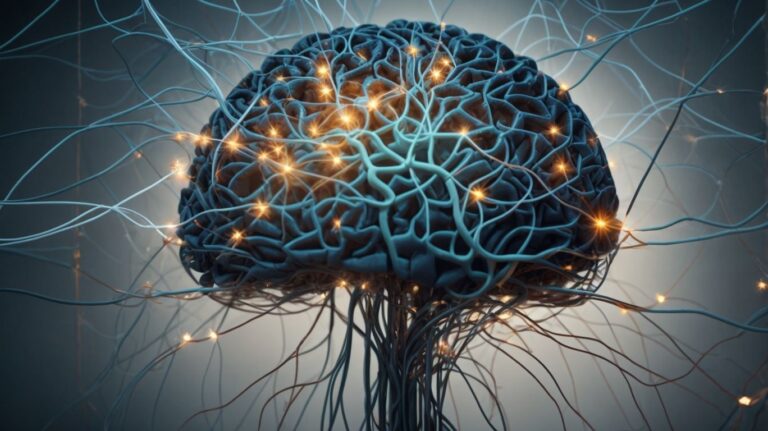Have you ever wondered about the concept of Thanatos in psychology? This intriguing term, coined by a famous psychologist, delves into the darker side of human behavior and thought processes. From aggressive tendencies to obsessive thoughts about death, Thanatos plays a significant role in shaping our actions and beliefs.
In this article, we will explore the characteristics of Thanatos, its manifestations in different cultures, various theories surrounding it, and its effects on human behavior. Join us as we unravel the complexities of the death instinct and learn how to cope with it in our lives.
Contents
- 1 What Is Thanatos in Psychology?
- 2 Who Coined the Term Thanatos?
- 3 What Is the Death Instinct?
- 4 What Are the Characteristics of Thanatos?
- 5 How Does Thanatos Manifest in Different Cultures?
- 6 What Are the Theories About Thanatos in Psychology?
- 7 What Are the Effects of Thanatos on Human Behavior?
- 8 How Can We Cope with Thanatos in Our Lives?
- 9 Frequently Asked Questions
What Is Thanatos in Psychology?
Thanatos in psychology refers to the concept introduced by Sigmund Freud that represents the death instinct in individuals’ behaviors and drives.
This concept of Thanatos plays a crucial role in psychoanalytic theory as it complements the more commonly known Eros, which symbolizes the life instinct. Freud believed that these two opposing forces, Thanatos and Eros, are in constant conflict within the human psyche, influencing our emotions, desires, and motivations.
Freud’s idea of Thanatos suggests that humans possess an innate urge towards self-destruction and aggression, manifesting in behaviors such as risk-taking, self-sabotage, and violent tendencies.
Understanding Thanatos is essential in comprehending the complexities and contradictions in human behavior, shedding light on our darker impulses and the intricate interplay between life and death drives.
Who Coined the Term Thanatos?
Sigmund Freud, the renowned psychoanalyst, coined the term ‘Thanatos’ to describe the death instinct in human behavior and drives.
This concept was introduced as a counterpart to Freud’s theory of ‘Eros,’ the life instinct. According to Freud, the presence of Thanatos represents the innate desire for self-destruction and return to an inorganic state. In psychoanalytic theory, Thanatos is believed to promote aggression, destruction, and the pleasure derived from these actions. The interplay between Thanatos and Eros is seen as fundamental in shaping human behavior and motivations.
What Is the Death Instinct?
The death instinct, as postulated by Freud, is a fundamental concept in psychoanalytic theory that represents the self-destructive and aggressive tendencies inherent in individuals.
Freud believed that the death instinct, or Thanatos, operates alongside the life instinct, or Eros, in a perpetual struggle within the human psyche. While Eros drives individuals toward life, creativity, and relationships, Thanatos compels destructive tendencies that can manifest in violence, self-harm, or aggressive behaviors.
This dualistic nature of human nature, according to Freud, leads to complex and sometimes contradictory behaviors. The death instinct, rooted in the unconscious mind, can influence actions that seem irrational or harmful, showcasing the depth of our inner conflicts.
What Are the Characteristics of Thanatos?
The characteristics of Thanatos include aggressive and destructive tendencies, self-destructive behaviors, and obsessive thoughts about death, all reflecting the death instinct’s influence on human psychology.
Aggression, a core element of Thanatos, manifests in various ways, from physical violence to verbal hostility, often driven by an innate urge to destroy. This aggressive energy, as proposed by Freud, represents the death drive, a compelling force seeking to return organic matter to an inanimate state. Self-destructive behaviors, such as substance abuse or risky activities, serve as outlets for this destructive impulse, embodying a paradoxical desire for annihilation and release.
Morbid preoccupations rooted in Thanatos can lead individuals to dwell on themes of death, decay, and destruction, reflecting an unconscious fascination with mortality. These obsessions, whether expressed through art, literature, or personal thoughts, highlight the complex interplay between the life-affirming Eros and the death-oriented Thanatos within the human psyche.
Aggressive and Destructive Tendencies
Thanatos manifests through aggressive tendencies and destructive behaviors, showcasing the innate self-destructive nature of the death instinct.
These aggressive inclinations are deeply rooted in Freudian theory, where Thanatos represents the compelling urge towards death and destruction that counterbalances Eros, the life instinct. This psychological concept delves into the primal forces that drive human behavior, often leading individuals towards actions of violence, hostility, and harm.
For instance, acts of self-harm, extreme risk-taking, and aggression towards others can all be attributed to the influence of Thanatos, as it seeks to return the individual to an inorganic state. This internal conflict between life and death forces shapes human experience and behavior, contributing to a complex interplay of emotions and actions.
Self-destructive Behaviors
Self-destructive behaviors are a key characteristic of Thanatos, representing the internal conflict and destructive impulses associated with the death instinct.
These behaviors manifest in various forms, such as self-harm, substance abuse, risky behaviors, and even self-sabotage in relationships and career pursuits. Individuals engaging in such acts often experience deep emotional turmoil and unresolved psychological conflicts rooted in their subconscious.
From a Freudian perspective, Thanatos, the death drive, operates in opposition to Eros, the life force, leading to a complex interplay between the desire for life and the urge for destruction. This intricate dynamic underscores the intricacies of human nature and the inherent contradictions that shape our behaviors.
Obsessive Thoughts about Death
Obsessive thoughts about death are common manifestations of Thanatos, reflecting deep-seated fears and preoccupations with mortality.
These thoughts can often lead to death anxiety, a profound fear of dying and the inevitable end of life, causing significant distress and impacting daily functioning. Individuals with morbid obsessions may find themselves constantly fixating on themes of death, decay, or violence, resulting in heightened emotional turmoil and avoidance behaviors.
Sigmund Freud, the renowned psychoanalyst, delved into the concept of Thanatos as the death drive, a primal force in conflict with the life-affirming Eros. According to Freud, Thanatos drives destructive and aggressive behaviors, influencing individuals to seek self-destructive tendencies as a way of managing their inner turmoil and fears of mortality.
How Does Thanatos Manifest in Different Cultures?
The manifestation of Thanatos in different cultures can be observed through death rituals, mourning practices, and beliefs about the afterlife, reflecting varied interpretations of the death instinct.
Across diverse societies, the intricate tapestry of cultural expressions woven around the concept of death reveals a profound understanding and acceptance of mortality. Death ceremonies, ranging from elaborate processions to intimate family gatherings, provide a window into the unique ways in which societies navigate the transition from life to death. These rituals often serve not only as a means of bidding farewell to the departed but also as a way to commemorate their legacy and honor their spirit.
Death Rituals and Mourning Practices
Death rituals and mourning practices serve as cultural expressions of Thanatos, providing insights into how different societies cope with loss and mortality.
Across various cultures, death rituals act as a solemn dance with grief, veiled in tradition and symbolism. In Japan, the obon festival honors ancestral spirits through lanterns lit to guide them back. On the other hand, the Day of the Dead in Mexico blends pre-Columbian beliefs with Catholic customs, creating a vibrant celebration of life and death. These rituals, be it Tibetan sky burials or Irish wakes, offer a glimpse into the intricate tapestry of human experience and our eternal dance with mortality.
Beliefs about Afterlife
Beliefs about the afterlife reflect cultural interpretations of Thanatos, shaping individuals’ perspectives on death and the continuity of existence beyond mortality.
Exploring these diverse beliefs reveals the rich tapestry of human spirituality and existential ponderings. In some cultures, death is seen as a transition to another realm where the soul journeys on, while in others, it marks the end of a physical existence. To dig deeper into Thanatos in psychology and understand the death instinct, refer to this external link.
Religions offer a framework for understanding the afterlife, with concepts of heaven, hell, reincarnation, or spiritual liberation shaping followers’ attitudes towards mortality. Whether through ancestral veneration, reincarnation cycles, or beliefs in eternal peace, humanity’s varied perspectives on the afterlife highlight the depth of our contemplations on the mysteries of existence.
What Are the Theories About Thanatos in Psychology?
Various theories in psychology address Thanatos, including Freud’s theory of the death instinct and Jung’s perspectives on the darker aspects of human psyche.
Freud’s concept of the death instinct, also known as Thanatos, suggests that humans possess an innate drive towards self-destruction and aggression, which contrasts with Eros, the life instinct. According to Freud, these opposing forces constantly interact within the individual’s psyche, shaping behavior and influencing decisions.
Jung, on the other hand, viewed Thanatos as a manifestation of the shadow self, representing the suppressed, darker aspects of one’s personality.
Exploring the implications of these theories provides valuable insights into human nature, motivations, and the complexities of the unconscious mind. While Freud focused on the intrapersonal conflict between Eros and Thanatos, Jung expanded the discussion to include the collective unconscious and archetypes, offering a broader perspective on the human psyche.
Freud’s Theory of Thanatos
Freud’s theory of Thanatos posits the existence of a death instinct that drives self-destructive and aggressive behaviors in individuals, challenging the life instincts represented by Eros.
Thanatos, as described by Freud, symbolizes the inherent human tendency towards aggression and destruction, in contrast to the life-sustaining Eros. This concept suggests that human behavior is influenced by these two opposing forces, leading to internal conflicts and external manifestations of violence or self-harm.
Freud believed that the interplay between Thanatos and Eros shapes individuals’ personalities and behaviors, influencing aspects such as creativity, relationships, and psychological well-being.
Jung’s Theory of Thanatos
Jung’s theory of Thanatos delves into the darker aspects of the human psyche, exploring the shadow self and the destructive potentials inherent in individuals.
According to Jung, the concept of Thanatos, representing the death drive, contrasts with Eros, the life force. The shadow self encompasses all the unconscious aspects of an individual, including repressed desires and negative traits. Embracing and integrating the shadow is crucial for achieving a balanced psyche.
Jung believed that exploring and acknowledging these darker impulses is essential for personal growth and individuation. By confronting the shadow self, individuals can unlock hidden potential and gain a deeper understanding of themselves.
Other Theories on the Death Instinct
Contemporary psychological theories offer diverse viewpoints on the death instinct, exploring its role in human behavior, mental health, and societal dynamics.
Some psychologists suggest that the death instinct, also known as Thanatos, is intertwined with Eros—the life instinct—creating a delicate balance between creation and destruction in the human psyche. This concept, popularized by Freud, has sparked debates among scholars, with modern interpretations shedding light on how self-destructive tendencies may arise as a coping mechanism or a response to unresolved conflict.
In clinical settings, therapists draw on these theories to understand patterns of behavior that lead individuals towards self-harm or risky behaviors, emphasizing the importance of addressing underlying issues to promote healing and growth. Post-Freudian thinkers like Erikson and Klein have expanded upon Freud’s work, offering nuanced perspectives on the complex interplay between life-affirming and death-related drives.
What Are the Effects of Thanatos on Human Behavior?
Thanatos exerts significant influence on human behavior, impacting mental health, aggressive tendencies, and coping strategies in the face of self-destructive impulses.
According to Freud, Thanatos, the death drive, operates alongside Eros, the life instinct, shaping individuals’ inner conflicts and external behaviors. The presence of Thanatos can manifest in various forms, such as feelings of apathy, nihilism, or aggression towards oneself or others.
When individuals struggle to reconcile their life and death instincts, they may experience heightened levels of anxiety, leading to maladaptive coping mechanisms like substance abuse or risky behaviors.
Understanding the role of Thanatos in the human psyche is crucial for mental health professionals to address underlying issues and guide individuals towards healthier coping mechanisms.
Impact on Mental Health
Thanatos’ impact on mental health manifests through self-destructive behaviors, negative coping mechanisms, and internal conflicts that challenge individuals’ emotional well-being.
Self-destructive behaviors, often stemming from deep-rooted psychological issues, can exacerbate emotional instability and lead to a vicious cycle of destructive patterns. These behaviors, such as substance abuse, self-harm, or disordered eating, serve as maladaptive coping strategies that provide temporary relief but further intensify psychological distress. Individuals grappling with Thanatos may struggle to regulate their emotions effectively, resulting in heightened vulnerability to depressive episodes, anxiety disorders, or even suicidal ideation.
Influence on Aggressive and Destructive Behaviors
Thanatos contributes to aggressive and destructive behaviors in individuals, fueling self-harm, violence, and maladaptive responses to internal conflicts.
Freudian psychoanalysis views Thanatos, the death drive, as a fundamental element in human nature, alongside Eros, the life instinct, shaping our complex psychological landscapes. Self-harm and aggressive acts can be understood through the lens of this innate impulse towards destruction, a counterforce to the drive for life and growth. When Thanatos gains prominence, it manifests in destructive urges, risky behaviors, and a fascination with death. This intertwining of life and death forces within individuals can lead to intricate inner struggles and external expressions of aggression.
Role in Coping Mechanisms and Defense Mechanisms
Thanatos’ role in coping and defense mechanisms underscores its impact on individuals’ ability to manage self-destructive impulses and existential anxieties through adaptive or maladaptive strategies.
As a concept introduced by Freud, Thanatos symbolizes the innate death instinct present within each person, driving desires for destruction and aggression.
When faced with the inevitability of death, individuals may exhibit diverse responses, ranging from healthy acceptance to pathological denial.
Adaptive coping mechanisms involve confronting mortality with resilience and finding meaning in life, while maladaptive strategies may lead to avoidance, substance abuse, or other destructive behaviors.
Internal conflicts arise as the ego struggles to balance the id’s impulses and the superego’s moral standards, navigating the tension between life and death instincts.
How Can We Cope with Thanatos in Our Lives?
Coping with Thanatos involves seeking professional help, engaging in self-care practices, and finding meaning and purpose in life to address self-destructive tendencies and existential anxieties.
Professional support plays a crucial role in navigating the complexities of Thanatos. Therapists, counselors, and support groups offer a safe space to explore fears and concerns surrounding mortality. Through therapy sessions, individuals can process grief, fear, and existential dilemmas constructively.
Self-care routines, such as regular exercise, meditation, and mindfulness practices, are essential for maintaining emotional balance when facing the specter of Thanatos. These activities promote relaxation, reduce stress levels, and improve overall well-being.
Cultivating a sense of purpose and fulfillment in life can help counter destructive impulses associated with Thanatos. Engaging in meaningful activities, pursuing personal growth, and nurturing relationships provide a sense of connection and significance that can combat feelings of isolation and despair.
Seeking Professional Help
Seeking professional help is essential in coping with Thanatos, as trained therapists and counselors can provide guidance, support, and therapeutic interventions to address self-destructive tendencies and existential fears.
Therapy and counseling are proven methods to help individuals navigate through the complexities of Thanatos.
The presence of mental health professionals offers a safe space for individuals to explore their emotions, thoughts, and behaviors without judgment.
Through evidence-based practices and psychotherapeutic techniques, such as cognitive-behavioral therapy and dialectical behavior therapy, individuals can work towards understanding the root causes of their self-destructive behaviors and developing healthier coping mechanisms.
Engaging in Self-care and Healthy Coping Strategies
Engaging in self-care practices and adopting healthy coping strategies can help individuals navigate the influences of Thanatos, promoting emotional resilience and psychological well-being.
By incorporating self-care activities into daily routines, individuals can create a buffer against the stress and challenges that come with various life circumstances. Taking time for oneself, whether through meditation, exercise, or simply engaging in hobbies, allows for a much-needed break from the demands of everyday life. These practices not only foster a sense of inner peace but also contribute to a more positive outlook on life. Developing positive coping mechanisms helps individuals manage difficult emotions and situations effectively, enhancing their overall mental wellness.
Finding Meaning and Purpose in Life
Discovering meaning and purpose in life offers a powerful antidote to the existential anxieties and self-destructive tendencies associated with Thanatos, fostering a sense of fulfillment and resilience.
By delving deep into one’s personal values and intrinsic motivations, individuals can navigate through the turbulent waters of existential crises. The pursuit of life purpose not only provides direction but also creates a shield against the nihilistic pull of Thanatos. Through introspection and self-discovery, people can cultivate a profound connection to their true essence, reinforcing their psychological resilience in the face of adversity.
Frequently Asked Questions
What is Thanatos in psychology?
Thanatos, also known as the death instinct, is a concept in psychology proposed by Sigmund Freud. It refers to the innate desire or drive towards death and destruction, alongside our desire for life and pleasure (known as Eros).
What is the origin of the concept of Thanatos?
Sigmund Freud first introduced the concept of Thanatos in his book “Beyond the Pleasure Principle” in 1920. It is derived from the Greek god of death, Thanatos, and is considered one of the two basic instincts that drive human behavior, along with Eros.
How does Thanatos manifest in human behavior?
According to Freud, Thanatos manifests in human behavior through self-destructive tendencies, aggression, and violence. It can also be seen in our fascination with death and our desire to harm ourselves and others.
Is Thanatos considered a negative or harmful concept?
The concept of Thanatos is often viewed as negative or harmful, as it represents the destructive and self-destructive aspects of human behavior. However, some psychologists argue that it is a necessary component of our psyche and can be channeled in a positive way.
How does Thanatos relate to the concept of death anxiety?
Thanatos and death anxiety are closely related concepts. Death anxiety is the fear of death and the unknown, and it is believed to stem from our innate death instinct. The fear of death can also fuel our desire for life, as we try to avoid or overcome the inevitable.
Can Thanatos be overcome or repressed?
Some psychologists argue that Thanatos can be repressed or overcome through defense mechanisms such as denial, repression, or sublimation. However, it is a fundamental aspect of human behavior and may always exist in some form.




